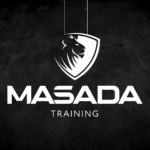With four years of active service followed by seventeen more as a reservist, much of it in the Special Operations community, my experiences have profoundly shaped how I approach self-defense training. Understanding how the military operates and its demands on personnel has influenced the content of our training at Masada Tactical and the methodology behind it.
While the civilian world differs from the military in many respects, there are parallels when designing training programs, especially those intended to provide realistic solutions to highly stressful and volatile situations. Military personnel have a different mindset and understanding of risk but are often constrained by time. Their training cycles are brief, sometimes only lasting a few weeks or days. As a result, the need for a concise and practical curriculum is paramount. Similarly, civilians may have more time for training but may lack the physical attributes of a particular operator, necessitating a curriculum focused on realistic skills and efficiency.
To address the needs of both populations, I rely heavily on “Hick’s Law.” This principle, derived from psychology, emphasizes that the fewer skills a person knows, the faster their reaction time, especially under stress. Therefore, whether I am training special operators or stay-at-home moms, our curriculum is designed to be short and effective. Members attending just one class leave with skills they can implement immediately.
Years of experience have allowed me to personally test skills or receive feedback from thousands of past students, enabling me to refine and evolve our curriculum continually. Every skill taught at Masada Tactical is personally vetted, and those found ineffective are removed from the curriculum. Our students benefit from an updated curriculum that is evaluated and refined regularly.
This process has enabled us to eliminate outdated skills and develop new ones to address emerging threats. Today, I am proud to say that skills developed at Masada are taught to special operations forces in Israel.
One key aspect that sets Masada apart is our emphasis on mindset, a direct result of my military training. With limited training time, emphasis must be placed on more than just skills to increase the chances of success in a confrontation. Stress inoculation drills, a cornerstone of our training, not only build aggression but also teach individuals about themselves and their true capabilities. These drills also aid in fitness and conditioning, ensuring you’ll learn life-saving skills and get in shape whether you’re a professional warrior or an enthusiast.
While many of these principles are not unique, Masada Tactical maintains a close relationship with the military, special operations, and police. This allows us to refine our curriculum continually to remain relevant and effective.
In conclusion, my military background’s influence has profoundly shaped how we approach self-defense training at Masada Tactical, ensuring that our curriculum is concise, effective, and continuously evolving to meet the needs of our diverse student body.



